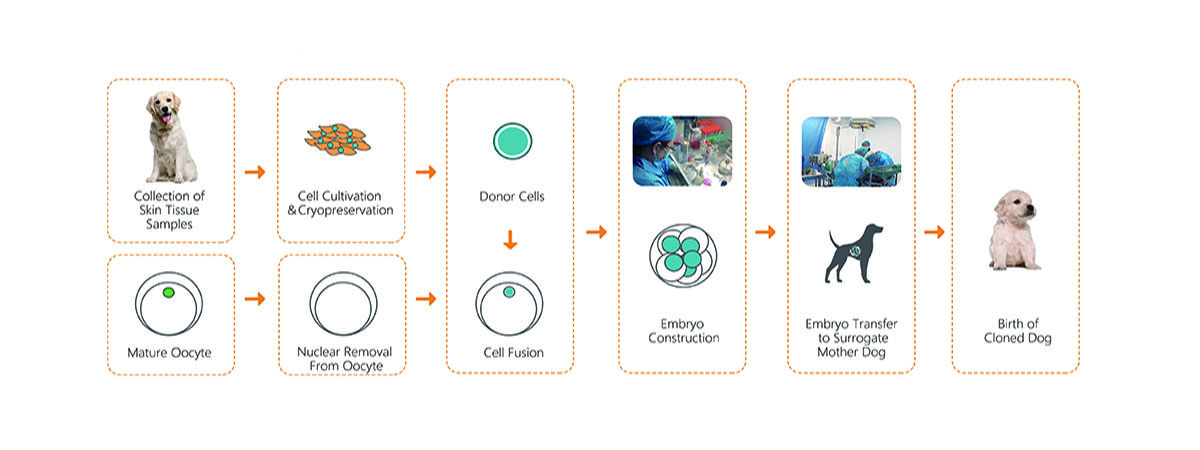

Dog cloning service offers a remarkable opportunity to extend the companionship we cherish with our pets. At Sinogene, we specialize in creating genetic twins of beloved dogs through advanced cloning technology.
A cloned dog is a genetic replica of the donor dog, born later in time. Importantly, the pet dog cloning process preserves all the unique traits that make your dog irreplaceable, including temperament, intelligence, and physical appearance. Crucially, no changes are made to the original dog's genetic code during this process.
The journey to clone your pet dog begins with Genetic Preservation. This involves collecting a small tissue sample from your dog, typically a simple and non-invasive procedure conducted by your veterinarian. This sample contains the essential genetic material that will be used to create a clone.
Next, the genetic material from the donor dog's cell is transferred into an egg whose nucleus has been removed. This reconstructed egg, now containing the donor dog's genetic information, develops into an embryo. The embryo is then transferred to a surrogate mother dog, where it gestates and grows naturally.
Through dog cloning, we enable dog owners to preserve their cherished relationships with their pet dogs for years to come.
Contact us at Sinogene to discover more about our cutting-edge cloning service and how we can help you keep your canine companion's spirit alive.

Cloned pet dogs share identical genetic material with the donor dog. However, individual traits and behaviors can be influenced by environmental factors and experiences. Feedback from our clients indicates that inherent instincts often outweigh environmental influences in dogs.
Dog cloning is US$50,000, with 60%, and 40% installments.
While no scientific process is entirely risk-free, advancements and stringent protocols in dog cloning process have significantly minimized risks to negligible levels. Today, dog cloning is widely recognized as a safe and reliable method for producing healthy cloned dogs.
In theory, current cloning techniques can be applied to clone any breed of dog.
Once the cell culture process is successfully completed, cloning can proceed at the client's discretion. From the initial project initiation to the birth of the cloned puppy, the process typically spans 6 to 12 months. This timeline may vary based on our scheduling and other factors involved in ensuring a successful outcome.
Success rates can vary based on factors such as the health of the donor cells, the expertise of the cloning service provider, and the health of the surrogate mother dog.
